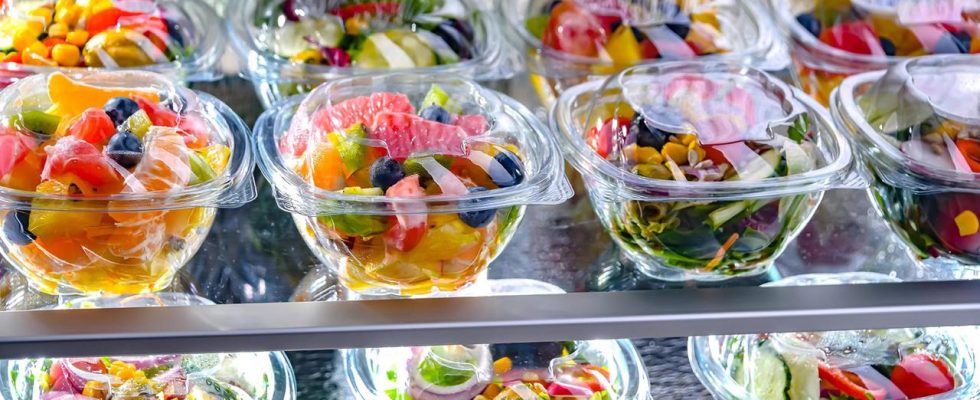Large packages that contain more air than product will no longer be available in the EU in the future. Neither do ketchup plastic bags and small shampoo dispensers. This is provided for in a regulation that Parliament is voting on today.
More and more packaging waste is accumulating in the EU and recycling is not keeping pace. Every inhabitant in Germany collects around 225 kilograms of packaging waste every year, as much as three washing machines weigh. And the trend is increasing. The new EU packaging regulation aims to counteract this.
“Thanks to the new European regulations to reduce packaging material, garbage cans at home will no longer overflow so quickly,” says SPD MEP Delara Burkhardt. There will be an end to shipping packages that contain more air than product. And with clearer information on the packaging, we are making it easier to separate waste correctly at home.”
The wooden bowls can stay
Overall, the amount of packaging waste is expected to fall by 15 percent by 2040 compared to 2018. To achieve this, the EU should, among other things, switch to more reusable packaging, similar to what is already common in Germany – through deposit systems for single-use plastic bottles or aluminum cans. However, there are also exceptions.
“In the mail order business, there is no obligation to address the issue of reusable goods if you use sustainable materials that have a high recycling rate,” says CDU MEP Peter Liese. However, certain disposable packaging should be banned completely. This applies to the ketchup plastic bags or the small shampoo dispensers that we know from hotels. In the future, light fruit and vegetables under one and a half kilos will no longer be allowed to be sold in disposable plastic packaging.
However, the wooden bowls in which the Camembert lies, as well as the paper bags for salt or pepper, can remain. “In the negotiations with the Council of Ministers, we managed to limit all of these bans to plastic. So there are no bans on paper materials,” explains CDU MEP Liese.
“Good news for consumers and the environment”
From 2030, basically all packaging should be recyclable. The new regulation also regulates the use of substances that are harmful to health in packaging that comes into direct contact with food – so-called PFAS. Behind this are per- and polyfluorinated alkyl substances or bisphenol A. The substances are often used to make food packaging made of paper and cardboard fireproof or waterproof. PFAS can affect fertility.
“New limit values for harmful PFAS chemicals in food packaging will also increase health protection,” says SPD environmental politician Burkhardt. The new rules for packaging in the European Union are “not only good news for the environment, but also for consumers.” The new regulation replaces an almost 30-year-old directive and is set to gradually come into effect next year.
Paul Vorreiter, ARD Brussels, currently Strasbourg, tagesschau, April 23, 2024 8:24 p.m

